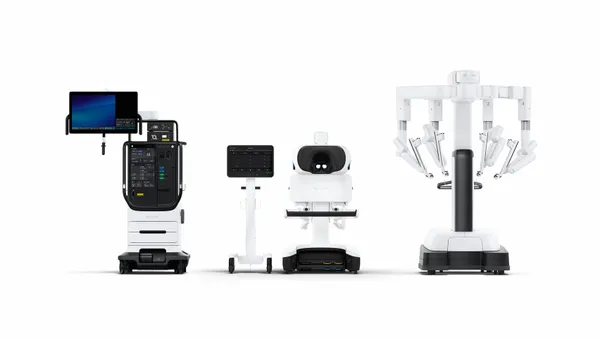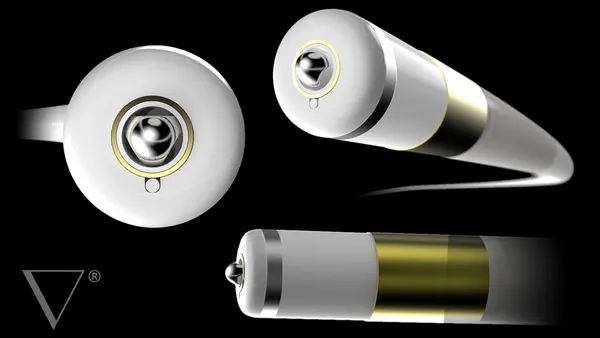UPDATE: Aug. 5, 2019: Abiomed’s stock inched up Monday morning on news that CMS will not cut reimbursement in fiscal year 2020 for DRG 215, the primary code covering Impella heart pump procedures.
In April, Abiomed alerted investors via an SEC filing to a potential 27% drop in reimbursement for the code, as was outlined in the proposed Inpatient Prospective Payment System rule.
The reversal in the final rule stemmed from CMS acknowledging feedback that certain coding changes and a new FDA indication for Impella to treat cardiomyopathy with cardiogenic shock were not reflected in claims for 2020. This resulted in more than two-thirds of claims not including the cost of Impella in charges for performing procedures, according to Jefferies analysts’ reading of the final rule.
Analysts at William Blair said the misrepresentative calculations this year could potentially lead to a rise in reimbursement next year. “[T]he CMS final ruling even highlighted some comments that suggested future claims data could result in relative weights for DRG 215 increasing if procedures were more accurately coded,” the analysts said in a note.
Dive Brief:
- Abiomed's stock lost more than a quarter of its value Thursday after the company lowered its yearly revenue targets amid slowdown in the number of U.S. sites adopting its Impella RP heart pump.
- The diminished confidence stems primarily from a 20% drop in sequential revenues from the Impella RP device, designed for patients with right heart failure. The company blamed weakness on lingering confusion among surgeons after FDA alerted healthcare providers to a higher rate of mortality observed in post-approval studies for the device than were seen in premarket trials.
- Executives lowered the full-year growth outlook to the range of 15% to 20%, down from a previous estimate of 17% to 23%.
Dive Insight:
Abiomed "has hit a proverbial wall," Jefferies analysts wrote in an Aug. 1 note to investors.
The company's booming growth has dampened since FDA issued a letter to healthcare providers in February explaining that less than 20% of post-approval study subjects implanted with Impella RP met the primary survival endpoint, compared to more than 70% in the clinical trial. The clinical trial helped the device land FDA approval for what the company says is the only PMA-holding right-sided device of its kind.
In May, the agency allayed some of the concerns in a follow-up letter concluding that the benefits of the device outweigh its risks when used in certain carefully selected patients.
Abiomed has yet to fully bounce back from the controversy. Echoing sentiments from its last earnings conference call in May, Abiomed CEO Michael Minogue cited "external noise and a distraction in our internal focus" and "confusion on the Impella RP letter" as challenges in the most recent quarter. Abiomed opened 23 U.S. sites for Impella RP in its first quarter of fiscal year 2020, compared to 50 in the quarter a year prior, CFO Todd Trapp said.
Minogue said the company is adjusting its U.S. distribution strategy to have a deeper presence in existing sites as well as targeting more community hospitals, while simultaneously expanding physician training. "[W]e continue to believe Impella adoption is a function of training, data and time," he said, according to a transcript compiled by Seeking Alpha following the call.
Another culprit in Thursday's stock sell-off could be uncertainty surrounding CMS' upcoming finalized Inpatient Prospective Payment System (IPPS) rule for 2020. Proposed in April, it outlined a roughly 25% decrease in payment level for the DRG code encompassing the majority of Impella procedures, according to an Aug. 1 note written by analysts at William Blair.
"Despite expectations for reimbursement to come down over time, management believes they can continue to grow adoption and utilization of Impella by demonstrating their ability to improve outcomes and lower ICU length of stay (plus hospitals can apply for CMS outlier payments that can help cover the cost of Impella)," the analysts wrote. Still, investors may be wary until the text of the final rule is announced.
Although U.S. growth rates were disappointing, Europe and Japan contributed to 44% revenue growth in Impella products sold outside the U.S. during the quarter. And the company could experience some slight boosts soon thanks to expansion of SmartAssist, its recently launched controller software for Impella CP, and Impella Connect, a platform for providers to more easily monitor patients. Impella Connect is set to come out by the end of the fiscal year.
Analysts remained optimistic about Abiomed's long-term prospects. The William Blair team called Abiomed "a nearly monopolistic business within the circulatory support industry," while analysts at Jefferies concluded, "With big, under-penetrated markets; supportive reimbursement; new markets, technologies, and indications coming; and no competition, there are few stories that can match [Abiomed]."













